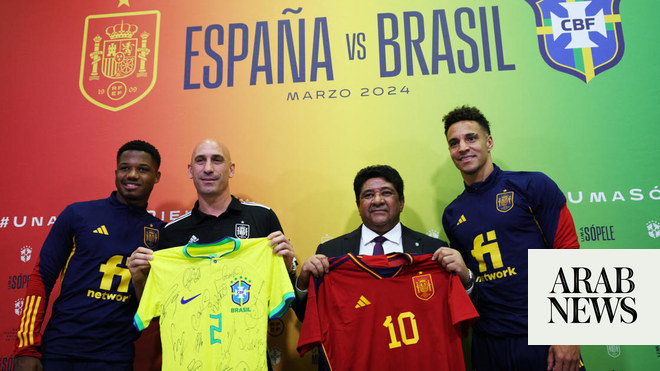
Thousands of protesters have hit the streets of some of Brazil’s biggest cities to denounce racist violence after the murder of a young Congolese refugee on one of Rio’s most famous beaches.
On Saturday morning demonstrators flocked to the waterside bar where 24-year-old Moïse Mugenyi Kabagambe was beaten to death late last month with fists, feet and sticks.
The racially-charged murder – captured in chilling security camera footage – was followed days later by another killing in which an unarmed black man was shot by a white neighbour who claimed to have confused him with a thief.
“It’s as if black blood is worth nothing,” said Bruna da Silva, one of several thousand people to join Saturday’s rally on Barra da Tijuca beach in Rio. “We’re here to say it does matter and that we won’t rest until we get justice.”
Silva, 40, said she understood the pain of losing a child. Her son, Marcos Vinícius da Silva, was 14 when he was gunned down during a police operation in Rio’s Complexo da Maré community.
“This was the shirt he was wearing,” Silva said, pointing to a bloodstained school uniform on the grass beside her.
Adriana Rodrigues, whose 23-year-old son was killed last year during the deadliest police raid in Rio’s history, said: “I’m here for justice … what they did with this young man was wrong.
“We’re victims of the same cowardice – and this must stop. Enough. Stop killing us.”
Also present was the mother of Kabagambe, who fled conflict in the Democratic Republic of Congo in 2011 and built a new life in Brazil.
“We will seek justice until the end,” Lotsove Lolo Lay Ivonne told protesters as they assembled under a fierce sun to demand an end to racist violence.
Many demonstrators also demanded the removal of Brazil’s far-right president, Jair Bolsonaro, who is notorious for making prejudiced remarks about black and indigenous people.
Bolsonaro has said nothing about the refugee’s death – but marchers had a great deal to say about him, chanting “Fora Bolsonaro!” (“Bolsonaro out!”) as they filed down the beach.
Protesters also gathered in Brazil’s biggest city, São Paulo; the capital, Brasília; and Recife, Belo Horizonte, Salvador and Porto Alegre, as well as in London, Berlin and New York.
Rio authorities have taken steps to support Kabagambe’s family, with the mayor announcing relatives will be handed control of the bar where he was murdered.
“What happened was brutal, unacceptable and something that isn’t in Rio’s nature,” the finance secretary, Pedro Paulo, told reporters.
Statistics, however, show the violent, premature death of young black men is very much part of life in Rio. Of the 1,245 people killed in police operations in Rio state in 2020, 86% were black. In the city of Rio, the proportion was 90%.
“The only policy they have for the favela is the policy of genocide,” said Ana Paula Oliveira, 45, whose 19-year-old son, Johnatha, was killed by police in 2014. “It’s sickening that it never stops.”
Social activist Wesley Teixeira said the scale of Saturday’s mobilisation gave him hope, while the normalisation of black deaths had made him despair. “The people here are survivors,” Teixeira said. “It’s in our unity we find solace.”












